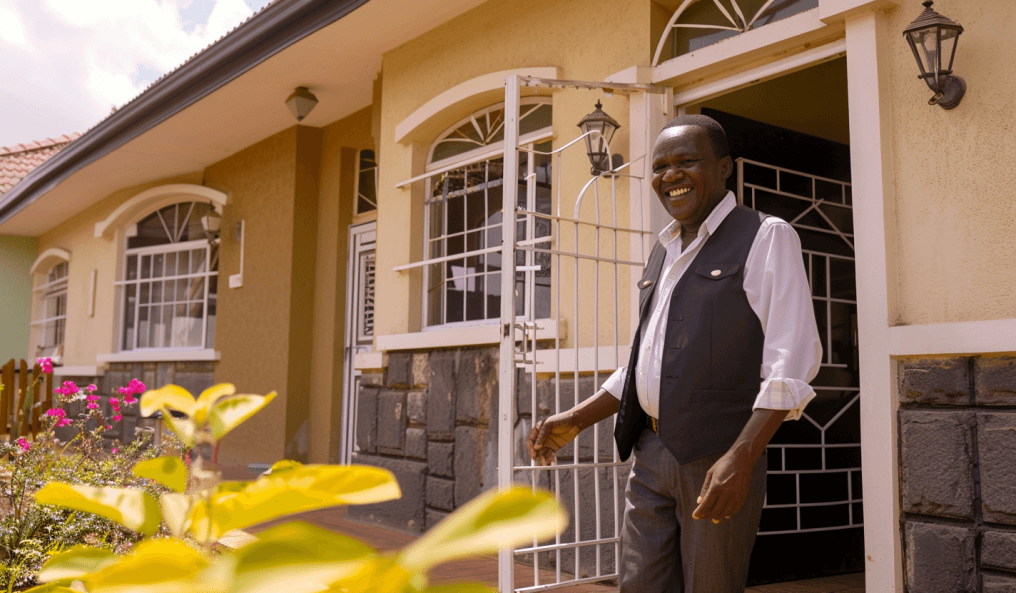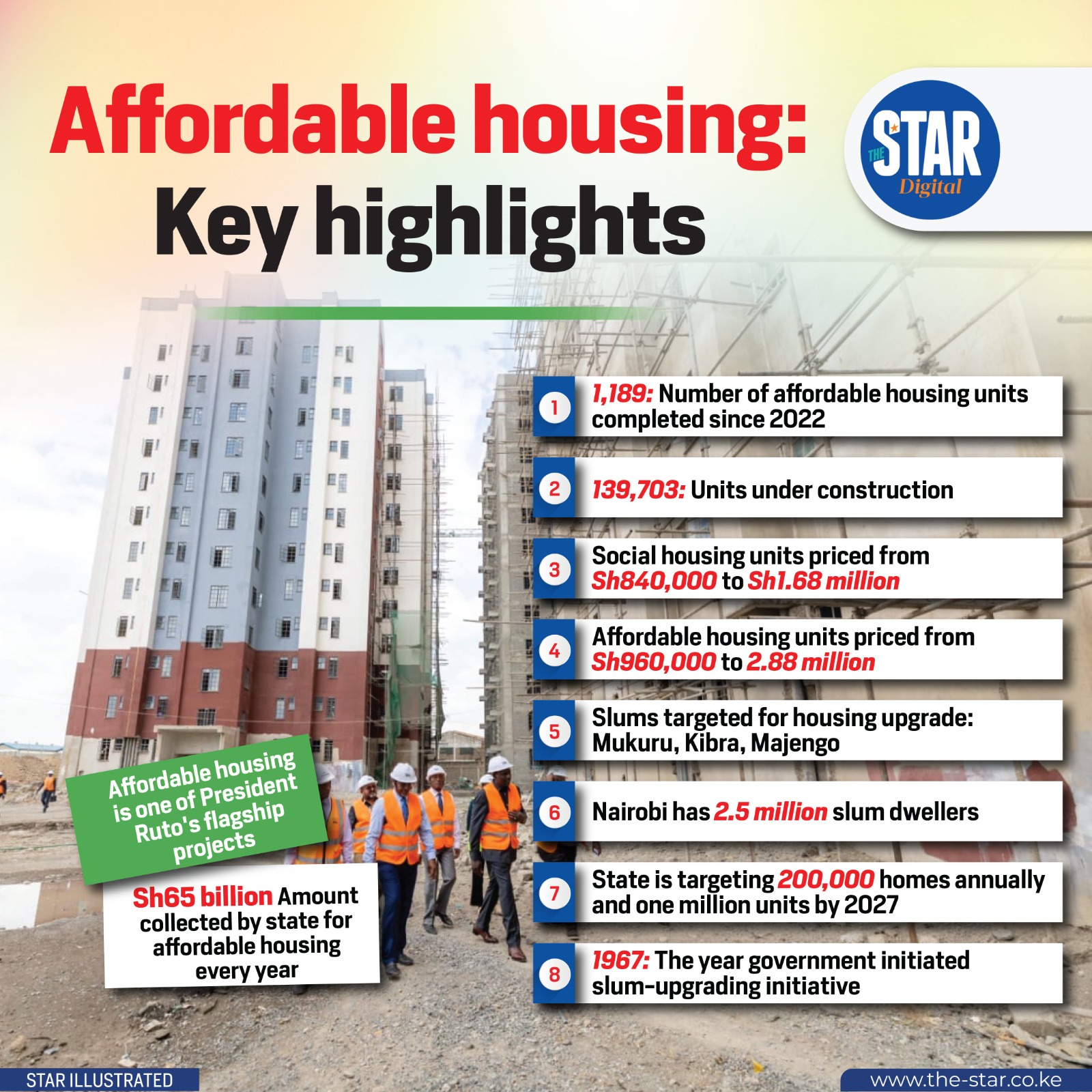The choice between investing in a gated community or opting for a standalone home is a pivotal decision for any prospective homeowner or investor in Kenya. Both options offer distinct advantages and inherent disadvantages, meticulously catering to divergent lifestyles, financial capacities, and long-term investment goals. In 2025, as Kenya's dynamic real estate market continues its trajectory of growth and diversification, a thorough understanding of these fundamental distinctions is absolutely crucial for making an informed, strategic, and ultimately successful choice that aligns with your specific needs and aspirations.
Gated Communities: The Allure of Modern Convenience, Security, and Community
Gated communities, frequently referred to as lifestyle estates or meticulously controlled developments, have witnessed an exponential surge in popularity across Kenya, particularly within and surrounding major urban centers such as Nairobi, Kiambu, and Kajiado. They present an undeniably compelling package that seamlessly integrates enhanced security, access to shared premium amenities, and a tangible sense of community belonging.
Pros of Gated Communities:
- Enhanced Security: This is, without a doubt, often the most significant and compelling draw. Gated communities typically feature robust perimeter walls or fences, strictly controlled access gates manned by security personnel, 24/7 manned security details, and sophisticated CCTV surveillance systems. This multi-layered approach provides residents with an unparalleled level of peace of mind and safety, especially critical for families with children.
- Premium Amenities: Developers of these estates frequently incorporate a wide array of shared facilities designed to enrich daily living. These can include luxurious swimming pools, fully equipped gyms, spacious clubhouses, dedicated children's playgrounds, well-maintained jogging tracks, serene green spaces, and in some cases, even reputable schools and convenient on-site convenience stores. These comprehensive amenities elevate the quality of life for residents and eliminate the need for individual homeowners to install and maintain such expensive facilities themselves.
- Vibrant Community Living: Gated estates are meticulously designed to foster a strong sense of community. Residents often interact organically through shared spaces, organized social events, and often, vibrant communal communication platforms like WhatsApp groups, leading to a more connected, supportive, and active social environment.
- Professional Maintenance and Management: The upkeep of common areas, including internal roads, landscaping, waste collection, and utility infrastructure, is typically professionally managed by a dedicated estate management company or a proactive Homeowners Association (HOA). This significantly reduces the individual burden of maintenance on homeowners and ensures uniformity, cleanliness, and high standards across the entire estate.
- Potentially Higher Rental Yields and Resale Value: The combined benefits of superior security and access to premium amenities often translate directly into higher rental demand and the ability to command premium rental yields, making these properties highly attractive to real estate investors. Furthermore, their organized and well-maintained nature can significantly contribute to better long-term capital appreciation and easier resale.
- Reliable Infrastructure: Many gated communities are developed with integrated, reliable infrastructure from the outset. This often includes consistent water supply (frequently from boreholes), stable electricity grids, and well-paved internal roads, addressing common challenges faced by standalone properties in less developed areas.
Cons of Gated Communities:
- Higher Initial Acquisition Costs: Properties situated within gated communities generally come at a premium price point, reflecting the significant investment in land, shared amenities, professional development, and comprehensive security infrastructure.
- Limited Customization and Strict Rules: Homeowners within these communities may find themselves constrained by strict rules and regulations enforced by the HOA. These rules can dictate architectural design, exterior modifications, landscaping choices, and even aspects like permissible pet ownership or laundry display, thereby limiting individual expression and uniqueness.
- Mandatory Homeowner Association (HOA) Fees: Monthly or annual service charges are compulsory for residents to cover the ongoing maintenance of common areas, security, and utility management. While these fees provide convenience, they represent a recurring financial commitment that adds to the overall cost of ownership.
- Potentially Less Space: Individual plot sizes or garden areas within gated communities are often smaller compared to standalone homes, offering less room for extensive personal gardens, private recreational facilities, or significant future extensions.
Standalone Homes: The Appeal of Freedom, Space, and Personal Control
Standalone homes, typically constructed on individually owned land parcels, offer a distinctly different set of advantages. This option primarily appeals to those who place a premium on unbridled privacy, complete customization, and absolute control over their property and its immediate surroundings.
Pros of Standalone Homes:
- Unparalleled Freedom to Personalize: This is arguably the most compelling advantage. Homeowners possess complete autonomy and creative control over architectural design, future extensions, landscaping decisions, and interior finishes, without needing to seek approval from any external governing body or association.
- Generous Land Size: Standalone homes are frequently built on more expansive plots, providing ample space for significant future expansion, creation of large private gardens, establishment of outdoor recreational areas, or even the addition of supplementary rental units for potential passive income.
- Absence of Recurring Monthly Fees: A significant financial advantage is the absence of mandatory HOA or recurring service charges. Homeowners retain complete financial autonomy, managing their own maintenance, utilities, and security arrangements by hiring services as and when required.
- Potential for Significant Appreciation (Raw Land): While built homes may appreciate at a steady pace, strategically acquired raw land in emerging growth corridors can experience substantial value appreciation over time, especially as infrastructure develops and urban sprawl extends into these areas.
- Potentially Lower Entry Costs (for Raw Land): Acquiring bare land is generally more affordable than purchasing a developed property within a gated community, making it a more accessible entry point for some initial investments, although subsequent development costs can be considerable.
Cons of Standalone Homes:
- Increased Security Concerns: Standalone homes inherently lack the comprehensive, centralized security infrastructure typically found in gated communities. This necessitates individual investment in security systems (e.g., perimeter walls, robust gates, alarm systems, private guards), which can be costly, require constant management, and may still offer less comprehensive protection.
- Sole Maintenance Burden: All aspects of property maintenance – including internal access roads (if applicable), drainage systems, waste collection, and landscaping – fall entirely upon the homeowner, requiring significant personal time, effort, and financial expenditure.
- Lack of Shared Amenities: Without communal facilities, homeowners must individually seek out or establish access to recreational amenities such as playgrounds, gyms, swimming pools, or communal green spaces, which may involve additional costs or travel.
- Infrastructure Challenges: In certain areas, standalone plots might face immediate challenges regarding reliable access to essential utilities like consistent water supply, stable electricity, or well-maintained public access roads. This often necessitates additional, potentially substantial, investment from the homeowner.
- Potential for Isolation: Depending on the specific location and density of surrounding properties, standalone homes can sometimes feel isolated, offering fewer spontaneous opportunities for neighborly interaction compared to the community-rich environment of a gated estate.
- Increased Legal and Zoning Responsibilities: Buyers of standalone plots must exercise heightened vigilance regarding legal and zoning compliance, as the onus of thorough verification and adherence to regulations often falls more heavily on the individual.
Making the Right Choice in 2025: A Tailored Decision
The ultimate decision between a gated community and a standalone home in 2025 must be a nuanced one, heavily dependent on your individual priorities, lifestyle preferences, and investment objectives:
- For Families with Children and Retirees: Gated communities, with their inherent safety, convenience, and built-in social environment, are frequently the preferred choice.
- For Real Estate Investors: Gated communities can offer quicker tenant acquisition and potentially higher, more stable rental yields. Conversely, acquiring open land for a standalone home presents significant long-term capital growth potential, especially if you are willing and able to undertake development.
- For Those Prioritizing Privacy and Customization: Standalone homes provide unparalleled freedom for personalized living spaces and extensive land use.
- For Budget-Conscious Buyers: While developed properties within gated communities generally have higher upfront costs, acquiring bare land for a standalone home can be cheaper initially, though the subsequent development costs can be substantial and unpredictable.
In 2025, market trends clearly indicate a continued and growing preference for gated communities, driven by ongoing urbanization, escalating security concerns, and the prevailing demand for integrated, convenient lifestyles. However, well-located standalone plots, particularly in areas with confirmed future infrastructure development plans, continue to offer exceptional long-term capital appreciation opportunities for patient and strategic investors. Regardless of your choice, conducting thorough market research, meticulously assessing your specific lifestyle needs, and crucially, seeking professional, unbiased advice from experienced real estate consultants are absolutely essential steps to ensure your property choice perfectly aligns with your goals and maximally leverages the dynamic opportunities present in Kenya's evolving real estate landscape. Your informed decision today will define your living and investment experience tomorrow.




